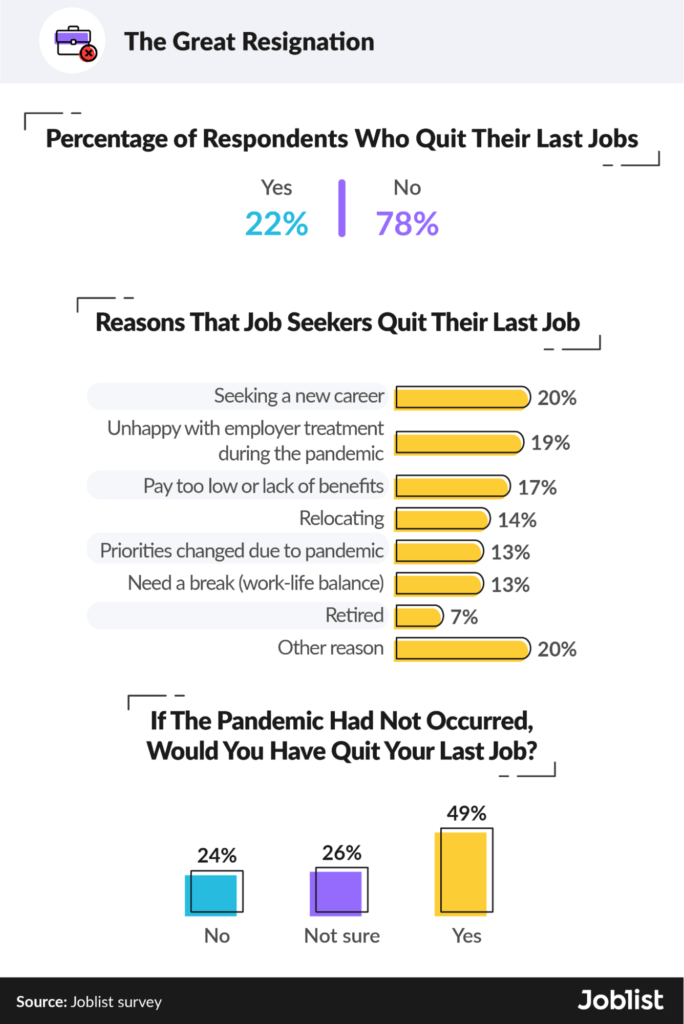
Thank you for reading this post, don't forget to subscribe!
Why is the first million always the hardest? Most of the time those who seek to make their fortune are just starting their financial journey. They often don’t have the ability to acquire great amounts of capital to start their venture nor have great opportunity to gain access to high income. So just like the board game Life, everyone starts their life at the crossroad.
The first choice is whether to start working or get an education. There are both advantages and disadvantages to each.
Let’s begin on the career path.
If you choose this path, you are not alone. The U.S. Bureau of Labor Statistics, in their April 26, 2022 release of “College Enrollment and Work Activity of Recent High School and College Graduates Summary“, found that in October 2021 66.9 percent of recent high school graduates went directly into the labor force versus 61.8 percent of recent high school graduates who enrolled in colleges or universities.
On this path, you will have access to acquire income earlier. However, you can’t always gain access to high income. There are many factors that can affect this: education level, marital status, family structure, homeownership status, region, race/ethnicity, and age. These factors can have an impact on your net worth and earning potential which can affect your income. The reason high income matters as a great wealth building tool is that any person can access their income. Whether through direct deposit, check, cash, or any other way that you receive your income, this is money that is accessible to you on a daily basis. This, however, is a double-edged sword because one must first make enough money to pay the bills before even being able to invest and start the journey to their first million. It is nearly impossible to save money and invest in building wealth when experiencing financial difficulties. The first priority is financial stability, then you can work towards building wealth. Another option is leveraging your debt, but not having your house in order will make it difficult to convince others to let you leverage that debt.

One option when starting out on the career track is to find a company with high upwards mobility.
These careers can often consist of back-breaking work in logistics. These are often “boring” jobs with more limited applicant pools. As an example, everyone wants to apply to work for Google, but fewer people want to commit to working on an oil rig. These jobs can often have better managerial structures due to laborers being more difficult to replace. With having a smaller pool or potential applicants, the company has more incentive to work harder at retaining their workers.
These companies also tend to be low-impact companies. Their goals are not to change the entire world. Their focus is to provide a good or a service. With this being their focus, they can often impact their industry as a whole. An example of this can be seen in the cattle industry. Many farmers are changing their set-ups to rubber flooring due to industry leaders such as EasyFix. This can lead to happier, healthy cows which produce better milk, better beef, etc.
Internal Mobility
In addition to those with high upwards mobility and low-impact, there are also companies with internal mobility where hard work and business experience can cause you to move up. Companies like ALDI can have high internal mobility with very little education requirement when working on the logistical side of the game. However, ALDI also has given leadership positions on day one to recent graduates. Overall, this company is a good example on how you can combine both the career track and the education track. You can work and get ahead but also come out of college with a high paying career with an on average 85k yearly salary in managerial positions and a competitive 21 dollars an hour or 35,000-50,000 a year with overtime and bonuses for a logistics worker.
While playing the board game Life, you can land on spaces that allow you to completely change your career without any resignation letters, awkward conversations with managers/ other employees, or attempts by employers to convince you to be a good team player and stay at the company until you die. With recent changes in the job landscape, more remote jobs, work from home options, hybrid scheduling, etc. have empowered workers to seek better employment.

Although once discouraged, job-hopping can be a great way to increase your wage.
Just like in the board game, evaluating whether the chosen career path/ company is still the best choice for your goals is important. Working for a singular company for 30 years or more does not often keep up with inflation. Transferring to a different company or a different career all together is becoming less and less taboo. More than a quarter of surveyed Americans said they would feel comfortable quitting their job. After gaining necessary experience or hitting a roadblock at your job, sometimes in order to advance your career to the next level changing jobs is necessary.
There are negatives to the career path that need to be considered. Often companies to save on labor have automated their resume vetting process by attaching keyword requirements and automatically rejecting those that don’t have a degree or 10 plus years of experience. Additionally, on average, higher education equals higher earnings. Averages, however, are not always the best factor in determining accessibility. This is further explored in the linked Forbes article.
Each path has its own merits and detriments. The two authors of this blog, for example, each followed a different path. One following the career path and the other following the education path. Neither regrets their decision.